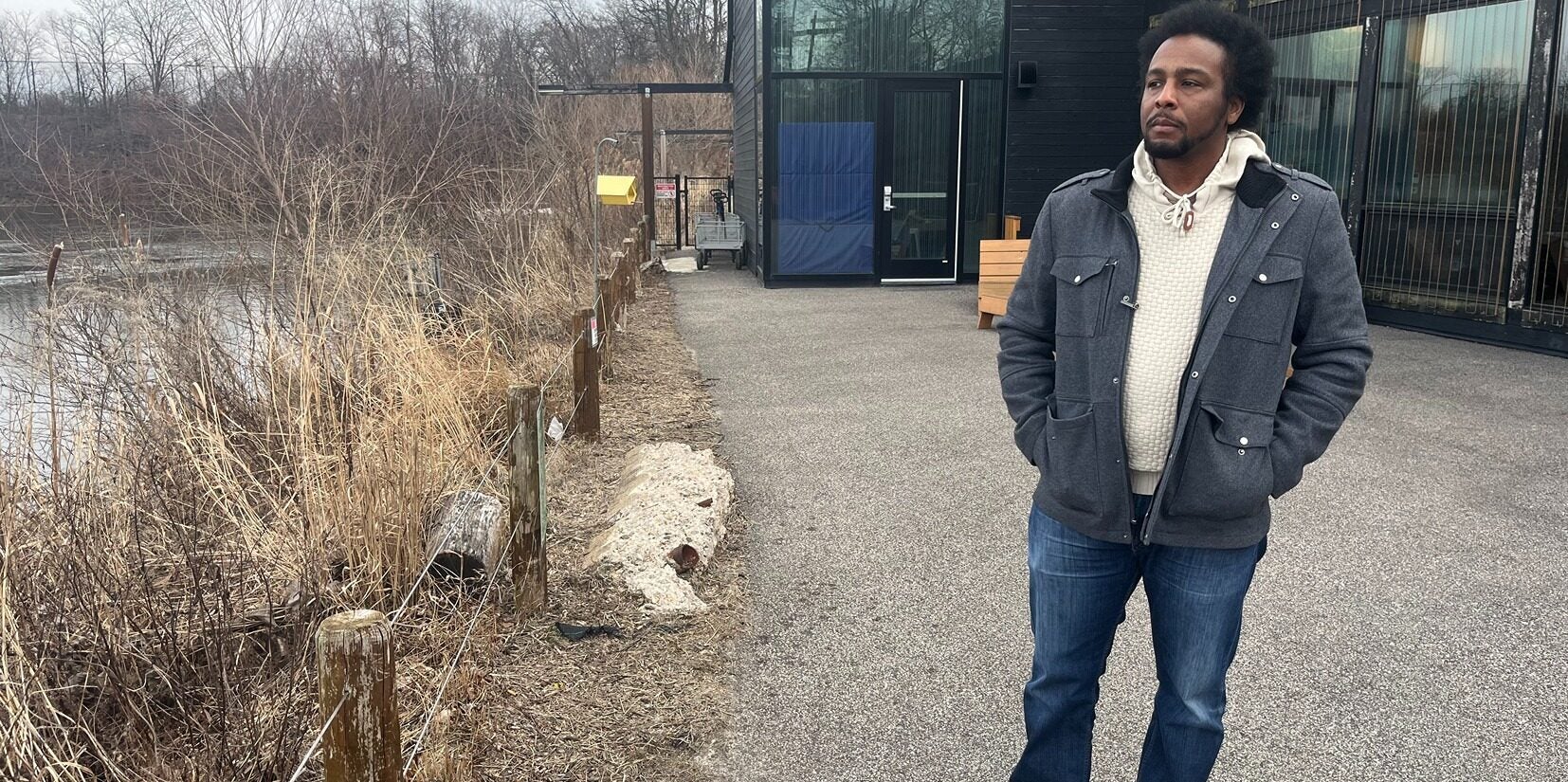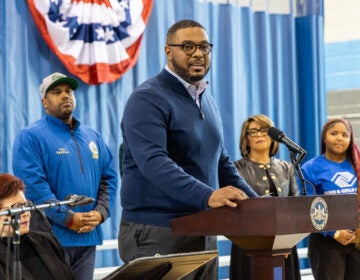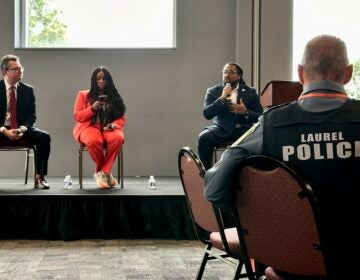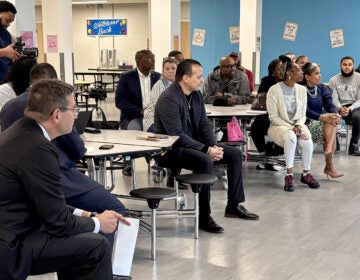Many Gen Zers deal with higher rates of mental health challenges and firearm suicides, according to a new report
Project Unloaded's report, Triggering, outlines strategies to improve mental health, prevent suicides, and enhance community safety concerning gun issues.
From Philly and the Pa. suburbs to South Jersey and Delaware, what would you like WHYY News to cover? Let us know!
One in five students in the School District of Philadelphia has considered suicide, according to the district’s 2023 Youth Risk Behavior Survey, which also found that firearm access quadruples the risk.
That statistic reflects a broader national concern: More youth, particularly those in Generation Z, are struggling with mental health issues and gun ownership rates are rising among their peers.
For Ihsan Hines, these issues are deeply personal. He often finds tranquility at the Discovery Center in Philadelphia’s Strawberry Mansion, gazing out at the water to cope with life’s challenges. His refuge became essential after a devastating tragedy.
On August 31, 2007 — just three days before Hines’ 29th birthday — his younger brother, Atif Hines, died by suicide at age 26.
“I was devastated,” Hines told WHYY News.
”He was full of so much joy. He was loved by a lot of people. I didn’t even know that he owned a gun. He purchased the gun the day that he died.”

Hines recalled receiving an unexpected text message from his brother, saying, “I’m sorry, I love you.” At the time, he believed it was intended for someone else. After his brother’s death, Hines experienced anger, guilt and depression — leading him to contemplate suicide himself in 2018.
“I looked up something online — Ironically, how to die without pain,” Hines said. “Something that popped up immediately was to give yourself three days.”
Those three days saved his life.
With the support of therapy and a strong foundation of faith, Hines overcame his depression. He then started My Brother’s Keeper Cares. As president and founder of the organization, Hines focuses on promoting mental health and suicide prevention. Through faith initiatives, community collaborations, art therapy, mentorship, education, fitness programs, and counseling, MBK Cares works to empower youth mental wellness and build stronger communities.
The need for such efforts is evident. A December report by Project Unloaded titled “Triggering,” cites a rise in gun suicides among youth.
The report notes that 45% of Gen Z respondents live in homes with firearms, and 30% have experienced gun violence. Mental health also ranked high among concerns for Gen Z, with 45% of those surveyed worrying about their mental health, and 55% among those who have experienced gun violence. Additionally, more than one-third of surveyed Gen Z women and girls say they’re likely to obtain a gun in the future.
Desmond Patton, the Brian and Randi Schwartz University Professor and Director, SAFELab at the University of Pennsylvania, believes more young people are speaking openly about mental health, especially on social media. “I’ve been a researcher for almost 15 years now, and I think the biggest jump has been the willingness to even talk and be vulnerable about mental health,” Patton said. “I think social media plays a role in one’s ability to communicate, but also tells us that young people feel comfortable talking to a digital space, more so than talking to, for example, a clinician.”
Project Unloaded will use the “Triggering” report to guide a social media campaign this spring aimed at reaching some 67,000 Philadelphia teens in areas with high rates of gun violence.
The goal is to reduce the stigma around mental health and to educate Gen Z about firearm risks — information they can share with their friends.
Content from Project Unloaded’s Instagram shows how firearms increase youth suicide risks, by spreading the message that guns make you less safe. The 90-second video presents their data-driven efforts aimed at encouraging young people to choose to live unloaded. They also partnered with Generation Z influencers on TikTok to reach additional young people and offer more content.
Anvesha Guru, a University of Pennsylvania freshman and second-year member of Project Unloaded, said cultural attitudes about guns and mental health need more than a simple shift. “Culture alone is not necessarily going to turn the tide,” Guru said. “We’re taking firearms from something that teenagers might think will make them safe and might think is cool to something that educating them with the facts so that they then know that, no, I am more likely to be harmed and more likely to have the people around me be harmed if I own this firearm than if I wouldn’t.”
Patton hopes large-scale messaging efforts will also help correct the spread of misinformation around mental health. “We see a lot of people, particularly on platforms like TikTok or Instagram, talking about their personalized experiences with mental health,” Patton said. “While that is extremely important, some of that information may not be factual, may not be the thing that a young person needs to get the resources and support that they need.”
If you’re feeling overwhelmed, struggling with substance use, or thinking about hurting yourself, please call 988. If you’re not in crisis and just want to talk, you can chat online with a Certified Peer Specialist. These are supportive and understanding people who are there to listen without judging you.

Get daily updates from WHYY News!
WHYY is your source for fact-based, in-depth journalism and information. As a nonprofit organization, we rely on financial support from readers like you. Please give today.





